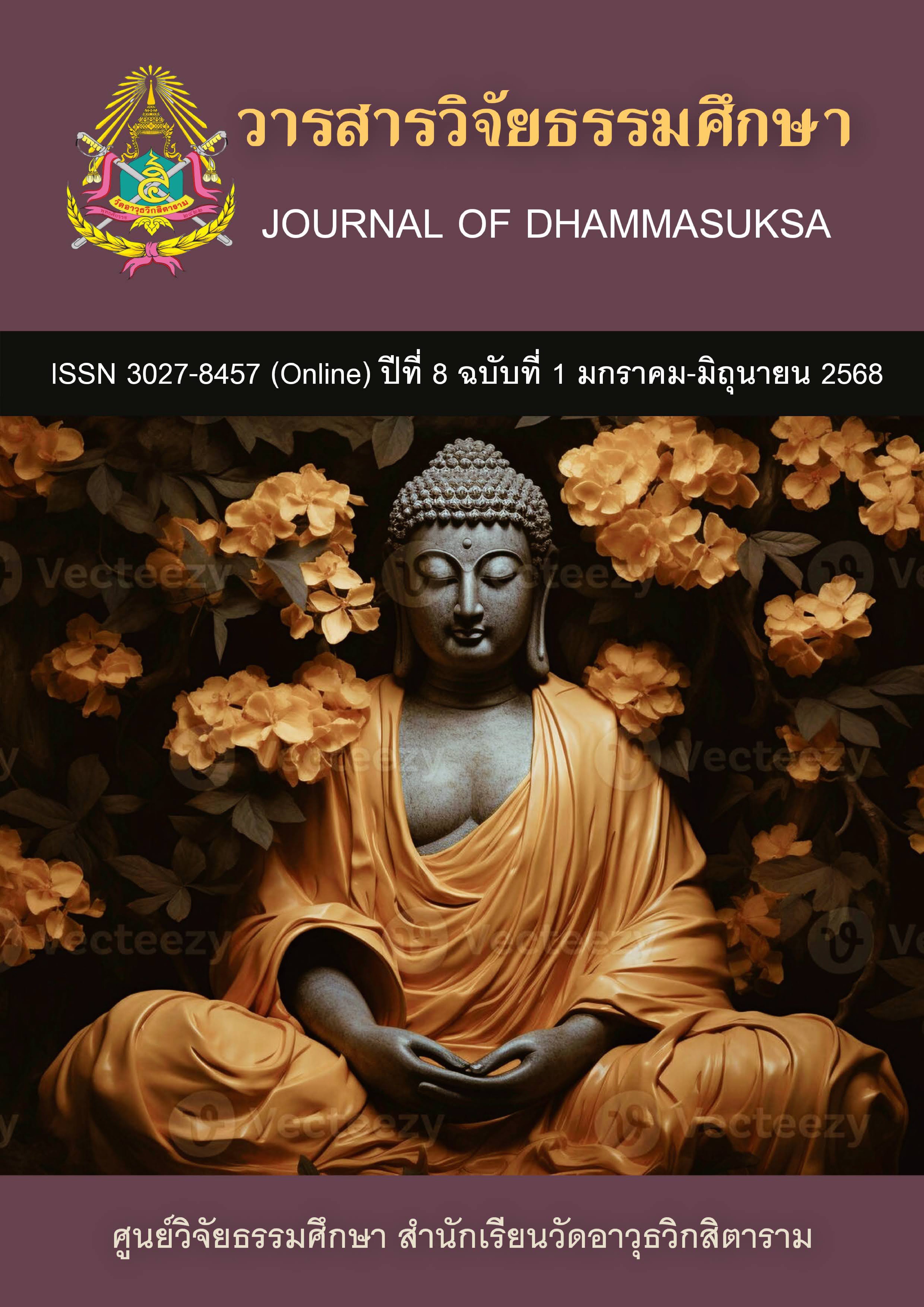INFLUENCES OF TRANSCENDENTAL LEADERSHIP ON POTENTIAL DEVELOPMENT IN PRIVATE COLLEGES AND UNIVERSITIES IN SHENYANG CITY UNDER LIAONING PROVINCE
คำสำคัญ:
Transcendental Leadership, Potential Development, Private Colleges and Universitiesบทคัดย่อ
The objectives of research were: (1) To explore the components of potential development in private colleges and universities in Shenyang city under Liaoning Province; (2) To investigate the transcendental leadership affecting potential development in private colleges and universities in Shenyang city under Liaoning Province;(3) To develop guidelines for improving transcendental leadership in private colleges and universities in Shenyang city under Liaoning Province.
This research methodology was a mixed-methods, including both quantitative and qualitative research. A stratified sampling method was used to collect data 356 from 3842 individuals who came from 6 outstanding private colleges and universities in Shenyang city under Liaoning Province. The population of the research consisted, lecturers from the 6 schools The sample size was determined by Krejcie and Morgan’s Table (1970). The key informants consisted of 10 key informants who obtained by purposive sampling method, they have the rich management and teaching experience. The instruments used for data collection were In-Depth interview,5-Points Likert Scale and Focus group discussion. Statistical method was used data analysis, including Exploratory Factor Analysis (EFA)and Multiple Regression Analysis.
The results finding reveal that: (1) There were 5 components of potential development in private colleges and universities in Shenyang city under Liaoning Province which consisted of education and talent development; business and discipline benefits; financial resources; human resources and discipline team building, and innovation and scientific research. (2) There were total 30 managerial guidelines of potential development of private colleges and universities in Shenyang city under Liaoning Province which consisted of 6 managerial guidelines for component of education and talent development; 6 managerial guidelines for component of business and discipline benefits; 6 managerial guidelines for component of financial resources; 6 managerial guidelines for component of human resources and discipline, and 6 managerial guidelines for component of innovation and scientific research.
เอกสารอ้างอิง
Boas S, Robert J.H, Michael B.A. (1993). The motivational effects of charismatic leadership: A self-concept based theory. Organization Science, 577-594.
Cardona P. (2000). Transcendental leadership. Leadership & Organization Development Journal, 201-207.
Dealtry R. (2000). Establish a methodology for appraising the strategic potential of the corporate university. Journal of Workplace Learning.99-111.
Pounder J S. (2001). New leadership and university organizational effectiveness exploring the relationship. Leadership & Organization Development Journal, 281-290.
Sporn B. (2001). Building adaptive universities: Emerging organisational forms based
on experiences of European and us universities. Tertiary Education and Management, 121-134.
Brown L M. (2001). Leadership development in universities. management inquiry, 312-323.
Fry L W. (2003). Toward a theory of spiritual leadership. The Leadership Quarterly, 693-727.
Joseph E. Sanders III, Willie E. Hopkins, Gary D. Geroy (2003). From transactional to
transcendental Toward an integrated theory of leadership. Journal of leadership
and organizational studies. 21-31.
Fry L. (2005). Toward a Theory of Ethical and Spiritual Well-being, and Corporate Social Responsibility through Spiritual Leadership. The Leadership Quarterly. 835-862.
Kirby D A. (2006). Creating Entrepreneurial Universities in the UK: Applying Entrepreneurship Theory to Practice. The Journal of Technology Transfer, 599-603.
Oshea R P, Chugh H, Allen T J. (2007). Determinants and consequences of university spinoff activity: a conceptual framework. The Journal of Technology Transfer, 653-666.
Rothaermel F T, Agung S D, Jiang L. (2007). University entrepreneurship: a taxonomy of the literature. Industrial and Corporate Change, 691-791.
Caroline H. (2007). Transactional, Transformational, Transcendental Leadership Motivation Effectiveness and Measurement of Transcendental Leadership. Leading the future of the public sector: The third transatlantic dialogue (2007): 1-26.
ดาวน์โหลด
เผยแพร่แล้ว
รูปแบบการอ้างอิง
ฉบับ
ประเภทบทความ
หมวดหมู่
สัญญาอนุญาต
ลิขสิทธิ์ (c) 2025 วารสารวิจัยธรรมศึกษา

อนุญาตภายใต้เงื่อนไข Creative Commons Attribution-NonCommercial-NoDerivatives 4.0 International License.



